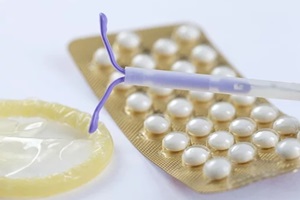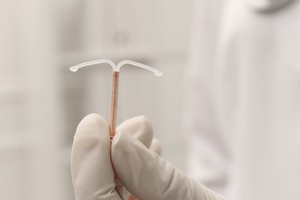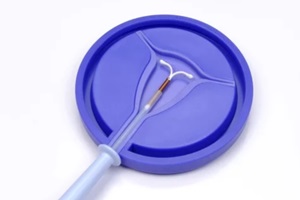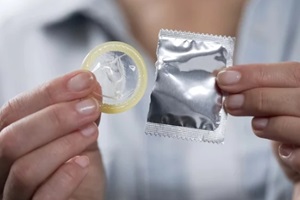 As intrauterine devices (IUDs) grow increasingly popular for preventing pregnancy over extended periods of time, women considering this form of long-acting yet reversible birth control may still have pressing questions.
As intrauterine devices (IUDs) grow increasingly popular for preventing pregnancy over extended periods of time, women considering this form of long-acting yet reversible birth control may still have pressing questions.
With new IUD varieties recently introduced and more options now available, it’s essential to understand the differences when weighing an IUD for your situation.
By knowing the right questions to ask before your gynecology appointment, you can gain the knowledge necessary to make an informed decision.
If you are considering an IUD but are unsure where to begin, this article covers some of the topics you’ll want to explore further with your gynecologist.
Clarifying Your Birth Control Needs and Preferences
Before diving into the specifics of each IUD variety, clarify your overall family planning needs and preferences to help determine if this method suits you. Key points to share upfront with your gynecologist include:
- Do you hope to get pregnant within the next 5 to 10 years? Since IUDs provide long-acting yet reversible contraception, they may not be the best option if you’re looking to conceive sooner rather than later.
- Do you have a preference between hormonal and non-hormonal options? There are pros and cons to both, so think through which you’d feel most comfortable trying first.
- How important is eliminating your period to you? Some hormonal IUDs can eventually help make periods lighter and less frequent over time. If maintaining monthly menstruation is a priority, a non-hormonal IUD may be preferable.
By covering these basics early on, your gynecologist can better guide you toward the IUD varieties that suit your lifestyle and wellness needs.
Understanding the Various IUD Options
If an IUD seems suitable after discussing your family planning priorities, the next step is learning about the available options. Key questions to ask include:
- What kinds of IUDs do you recommend and why? There is one copper IUD and four hormonal IUDs currently on the market, each with varying lifespans and dose delivery methods. An experienced gynecologist can break down the differences to help determine which may work best for your situation.
- How exactly do copper and hormonal IUDs differ? Understanding how each type works to prevent pregnancy can clarify some of the pros and cons. For instance, copper IUDs prevent fertilization through inflammation and are non-hormonal. In contrast, hormonal IUDs thicken cervical mucus and thin the uterine lining to prevent sperm from reaching an egg.
- What are the possible side effects of each IUD type? Side effects differ between copper and hormonal IUDs, with hormonal varieties more likely to cause intermittent spotting in the first 3-6 months and copper IUDs more associated with heavier cramps and periods, especially early on. Knowing the range of possible side effects can set reasonable expectations.
By getting the facts on how various IUDs function and their unique potential impacts, you’ll be well-equipped to select the variety that makes the most sense for your body.
Learning About Insertion Logistics and Considerations
Undergoing the insertion process may seem intimidating when getting an IUD initially. Arm yourself with knowledge ahead of time by asking:
- Does my medical history indicate any contraindications? Certain health conditions may make IUD insertion riskier, such as a severely distorted uterine cavity or current pelvic infection. Asking this allows your gynecologist to consider potential precautions based on your medical background.
- Should I take any medications beforehand? Anti-inflammatory meds such as ibuprofen before insertion can help minimize cramping discomfort. Depending on your pain tolerance, you may also ask your gynecologist about available local anesthetics to ease insertion.
- What kind of pain or discomfort may I experience? Everyone has a different sensation tolerance during the relatively quick insertion procedure. Inquire about normal sensations, from mild cramping to several minutes of more acute discomfort. The more mental preparation, the better.
- How long should side effects such as spotting last before following up? If you experience prolonged or severe bleeding after insertion, at what point should you touch base with your gynecologist to discuss potential solutions? Getting clarity around what’s considered abnormal can prevent unnecessary worry.
While insertion-related concerns shouldn’t deter you from choosing such an effective, low-maintenance contraceptive method, it’s reasonable to want to be fully in the know about the process and what to potentially expect afterward. Asking thoughtful insertion-related questions leads to greater peace of mind.
Addressing Long-term Use and Removal Considerations
Beyond the insertion itself, IUD use over months and years warrants its own list of questions, including:
- How often should I schedule follow-up appointments? Understanding what cadence of check-ins your gynecologist recommends for examining IUD placement and ensuring its continued effectiveness provides helpful guidance for long-term use.
- Can an IUD be removed at any time if I change my mind? The ability to reverse your contraception decision whenever needed may offer some reassurance about trying this method that remains inside your body for years. IUDs are designed for prompt removal.
- How quickly could I get pregnant after it’s removed? Confirm whether using an IUD for prolonged contraception delays future conception attempts whenever you do decide the timing is right. Typically, normal fertility resumes almost immediately after IUD removal.
Navigate Your IUD Decision Locally with Help from Raleigh Gynecology & Wellness
 When determining if pursuing an IUD feels right for your needs, having an attentive ear to listen thoughtfully and a knowledgeable voice to answer all your questions is key.
When determining if pursuing an IUD feels right for your needs, having an attentive ear to listen thoughtfully and a knowledgeable voice to answer all your questions is key.
Seek out a gynecology practice equipped with the experience to guide you through every consideration — from assessing your family planning priorities to long-term removal when the time comes.
Right here in Raleigh, the Raleigh Gynecology & Wellness team of health experts offers extensive knowledge of the full range of available IUDs and personalized guidance essential for this intimate decision process.
Whether you’re ready to move forward with insertion or simply wish to learn more about IUDs, contact us today at (919) 636-6670 or schedule an online consultation and let us provide you with the guidance you need to make the right choice for your health and wellbeing.


 Hormonal IUDs often lighten periods or eliminate them completely. Paragard can increase bleeding and cramping. If lighter periods are your goal, a hormonal IUD is likely the better choice.
Hormonal IUDs often lighten periods or eliminate them completely. Paragard can increase bleeding and cramping. If lighter periods are your goal, a hormonal IUD is likely the better choice. If you notice possible signs of IUD complications, such as severe cramping or abnormal discharge, contact your OB/GYN promptly.
If you notice possible signs of IUD complications, such as severe cramping or abnormal discharge, contact your OB/GYN promptly. An
An  Hormonal IUDs can provide additional benefits beyond just preventing pregnancy. The steady release of
Hormonal IUDs can provide additional benefits beyond just preventing pregnancy. The steady release of  For one, doctors are far more trained now in IUD insertion and counseling compared to the past. Women have also become more educated about the safety and benefits of IUDs through the internet and peers.
For one, doctors are far more trained now in IUD insertion and counseling compared to the past. Women have also become more educated about the safety and benefits of IUDs through the internet and peers. Sexually transmitted infections (STIs) remain an epidemic, affecting millions globally each year. Using barrier methods is one of the most effective ways to limit the transmission, spread, and consequences of these infections.
Sexually transmitted infections (STIs) remain an epidemic, affecting millions globally each year. Using barrier methods is one of the most effective ways to limit the transmission, spread, and consequences of these infections. Barriers protect you from all the immediate issues direct pathogen exposure brings, including stinging, itching, discharge, sores, warts, and other irritating symptoms that disrupt day-to-day life.
Barriers protect you from all the immediate issues direct pathogen exposure brings, including stinging, itching, discharge, sores, warts, and other irritating symptoms that disrupt day-to-day life. Pairing barriers that block fluid/skin contact, such as condoms, with those that disable sperm and germs, such as spermicides, can provide overlapping protection. For this reason, it’s wise to discuss effective combinations with your gynecologist.
Pairing barriers that block fluid/skin contact, such as condoms, with those that disable sperm and germs, such as spermicides, can provide overlapping protection. For this reason, it’s wise to discuss effective combinations with your gynecologist. You likely know mini-pills as
You likely know mini-pills as  In addition to fluctuating cycles returning after discontinuing mini-pills, your flow may intensify along with worsening PMS. Why? The synthetic progesterone in mini-pills helps minimize issues such as painful periods, heavy bleeding days, and premenstrual mood issues. Removing this regulating effect allows your body to revert to baseline patterns pre-pills.
In addition to fluctuating cycles returning after discontinuing mini-pills, your flow may intensify along with worsening PMS. Why? The synthetic progesterone in mini-pills helps minimize issues such as painful periods, heavy bleeding days, and premenstrual mood issues. Removing this regulating effect allows your body to revert to baseline patterns pre-pills.